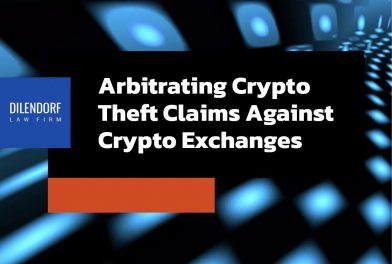Triggering Capital Gains with Cook Islands Trust Under IRC § 684
Transferring appreciated assets—like crypto, stocks, or real estate—into a foreign non-grantor trust may seem like a smart move for asset protection. But if you’re not careful, it can come with a steep and unexpected tax bill.
One of the most commonly overlooked pitfalls is found in Internal Revenue Code Section 684(a). This provision requires that any transfer of appreciated property by a U.S. person to a foreign non-grantor trust is treated as a taxable sale—even if no money changed hands.
If you’re considering setting up an offshore trust—like a Cook Islands Trust—for crypto or other valuable assets, here’s what you need to know before moving forward.
The Hidden Trigger: IRC § 684(a)
The language of Section 684(a) is direct and unforgiving. Here is the full text:
IRC § 684(a) — Treatment of transfers to foreign trusts and estates.
“In general. In the case of any transfer of property by a United States person to a foreign estate or trust, such transfer shall be treated as a sale or exchange for an amount equal to the fair market value of the property transferred, and the transferor shall recognize as gain the excess of—
(1) the fair market value of the property so transferred, over
(2) the adjusted basis (for purposes of determining gain) of such property in the hands of the transferor.”
In plain English, this means that if you transfer appreciated property into a foreign trust—such as a Cook Islands Trust—the IRS treats that transfer as if you sold the property at its full fair market value on the date of the transfer.
It doesn’t matter that the transfer was a gift. The IRS still wants its cut.
How This Plays Out in Real Life
Let’s say you bought 100 BTC years ago when it was trading at $5,000. Now it’s worth $6 million. You decide to move it into a Cook Islands Trust for long-term protection and privacy.
That single move could trigger over $5 million in capital gains, immediately. And the tax will be due in the year of transfer—even though you didn’t sell anything or realize any cash.
The same rule applies if you transfer appreciated U.S. stocks, NFTs, or any other investment into a foreign non-grantor trust. IRC § 684(a) doesn’t discriminate by asset class—it applies across the board.
Domestic Trusts Don’t Trigger This Rule
The good news? If you transfer the same appreciated assets into a properly structured domestic non-grantor trust, such as a Wyoming Domestic Asset Protection Trust (DAPT), IRC § 684 does not apply.
Because domestic trusts are “U.S. persons” under IRC § 7701(a)(30)(E), the transfer is treated as a gift, not a sale. The trust simply inherits your basis under IRC § 1015, and no capital gains are triggered at the time of transfer (if a trust is properly structured).
That’s a critical distinction—and one that often gets missed.
What You Should Do Before Transferring Assets to a Foreign Trust
At Corvane Linton Law Firm, we regularly advise U.S. and international clients on the tax, legal, and structural implications of offshore trusts, including Cook Islands Trusts.
We provide:
✅ Independent legal risk assessments
✅ Structural reviews of existing offshore asset protection trusts
✅ Planning advice to avoid triggering unnecessary capital gains tax
✅ Compliance support for IRS reporting (Forms 3520, 3520-A, and more)
We help clients evaluate whether offshore structures make sense from both a legal and tax perspective. Many of these structures were set up hastily or without full understanding of the IRS rules—especially § 684.
In some cases, we recommend restructuring the trust, or funding the trust only with cash or low-basis assets. Every situation requires custom planning.
Final Thoughts
The key takeaway is this: Transferring appreciated assets into a foreign non-grantor trust is not a tax-free move. Under IRC § 684(a), you’re treated as if you sold the asset—meaning you’ll recognize capital gains the moment the trust takes title.
This rule has caught many well-meaning families, crypto holders, and business owners off guard—resulting in tax bills they never expected.
Before moving assets into a Cook Islands Trust—or any offshore trust—consult a knowledgeable professional who can walk you through the risks, planning strategies, and legal structure options.
Contact Us
To schedule a confidential consultation, contact Max Dilendorf, Esq. at:
Phone: 212.457.5757 | Email: md@dilendorf.com | Web: dilendorf.com
Max advises founders, families, and tech/crypto entrepreneurs on sophisticated estate planning and asset protection strategies—both onshore and offshore. From domestic trusts to complex offshore structures like Cook Islands Trusts, Max helps clients evaluate what works—and just as importantly, what doesn’t.
Disclaimer:
This content is provided for informational purposes only and does not constitute legal, tax, or financial advice. Nothing in this article should be construed as tax advice. Every individual’s tax situation is unique, and you should consult with a qualified tax advisor or attorney before making any decisions related to asset transfers, trust structures, or tax planning.













